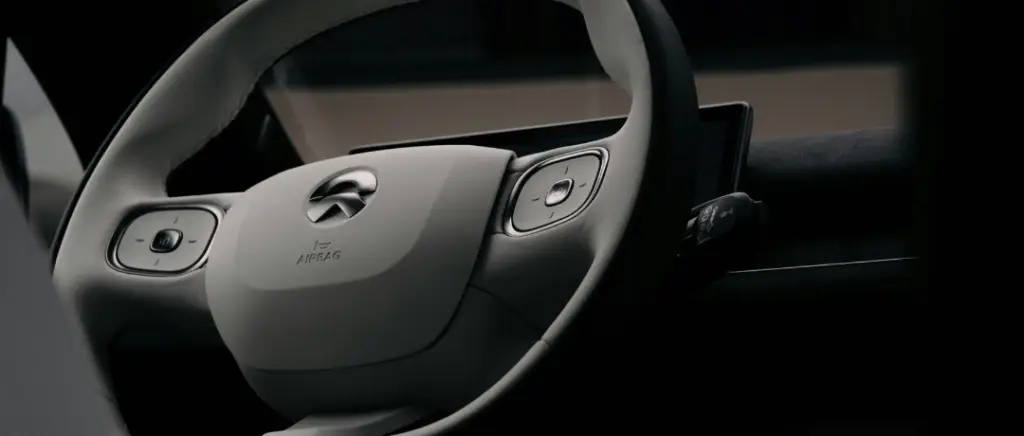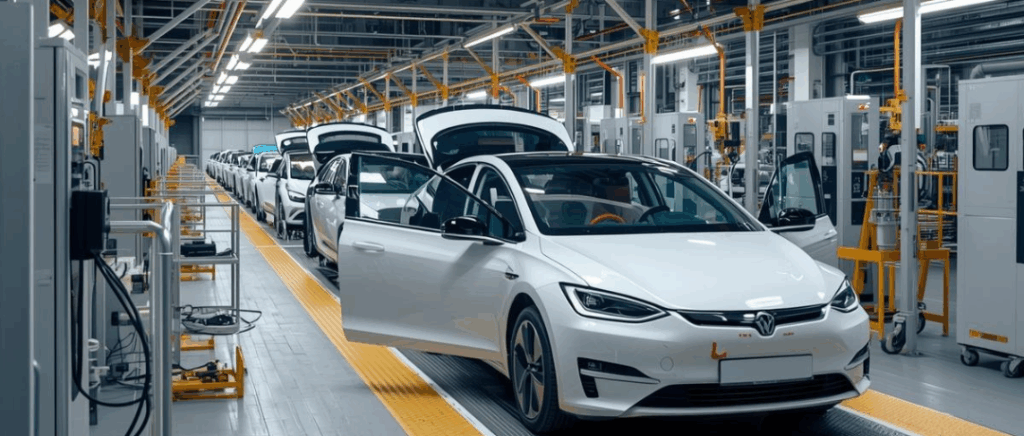Monday to Friday
9am - 12.30pm - 2pm - 7pm
Discover our new must-have guide :
Leasing: a financing method for professionals
To put the subject into context, the professional leasing Leasing is a method of financing that allows companies to hire a business vehicle. There are three types of leasing on the market:
For more information, here are the characteristics of a business lease:
- Le The professional leasing contract is aimed at all professionalswhatever their size or activity.
- This is a three-way contract between the company, the distributor and the leasing company.
- As mentioned above, at the end of the lease period, the company has three options:
- exercise the purchase option
- returning the vehicle
- renew the leasing contract
- The cost of professional leasing is made up of several items:
- monthly instalments
- insurance
- the guarantee deposit
- maintenance contract
- any penalties
To find out more about the ins and outs of these different leasing contracts, and the mistakes you should avoid making, this article is for you!
Long-term leasing: what is it?
La Long-term rentalis a financing method that allows you to lease an electric car for a period of up to three years. 12 to 60 months. The lessee only pays for the use of the vehicle, not for its purchase.
Today, owning a fleet of vehicles is a necessity for many companies. To meet this need, some companies are opting for alternatives to buying electric vehicles to amortise their costs, which is why long-term leasing has become a preferred option for many of them.
If you wish, a blog article written by us is available on how it works. leasing depreciation.
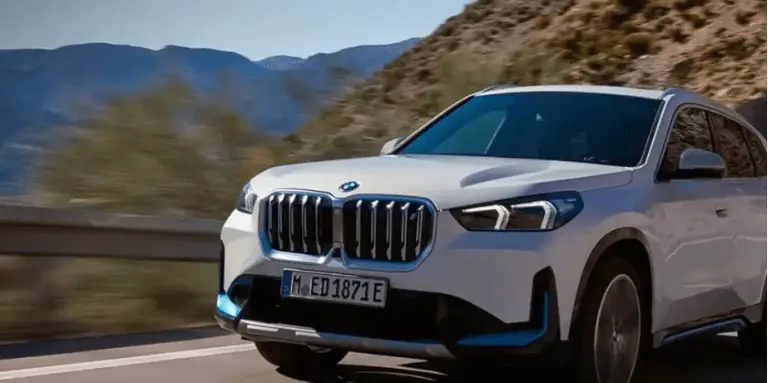
LDD: how does it work?
The lessee takes out a contract with a lessor, usually a bank or leasing company. The lessor is the owner of the vehicle and the lessee is, as the name suggests, the hirer.
Le leasing contracts provide for monthly rental payments. The amount of the lease depends on the make and model of the vehicle, the duration of the contract, the estimated mileage, and any additional services included in the contract. The contract may also be renewable.
For example, if you want to buy a Tesla Model Y for business leasing, we can offer you :
- Prices from €570/month
- 48-month long-term lease
- 10,000 km included
- No deposit
- Without 1ᵉʳ increased rent
If you would like to find out more about extending a long-term leasing contractIt's all in this article!
Leasing can include additional services such as insurance, assistance, servicing, maintenance and extended warranties. These services are taken into account when calculating the monthly rental charge.
At the end of the contract, the lessee must return the vehicle to the lessor. They can then take out a new long-term leasing contract for a new vehicle.
What are the advantages of long-term leasing?
The success of the LLD emanates from all the advantages it offers, which is why this type of contract is such a popular choice. Here are just a few reasons why:
- A controlled budget
Leasing allows companies to control the cost of owning a car by setting the rental amount in advance. This amount is determined on the basis of a number of factors, including :
- the price of the vehicle
- the planned mileage
- the vehicle's residual value
- maintenance
- insurance
Among other things, companies don't have to worry about vehicle maintenance, repairs or resale.
If you would like to take out a professional long-term leasing contract for this MG4we offer you :
- Prices from €570/month
- 48-month long-term lease
- 10,000 km included
- No deposit
- Without 1ᵉʳ increased rent
- A wide choice of electric vehicles
Long-term leasing offers wide choice of vehiclesof all makes and models. So companies can choose the vehicle that best suits their needs.
In addition, we have prepared a Top 5 electric cars available on full service leases for professionalswhich could give you some ideas for your next long-term hire contract.
- Tax optimisation
Lease payments are deductible from the company's operating costs. This reduces taxable profits and preserves the company's borrowing capacity. For greater clarity, ownership of the vehicle remains with the leasing company or bank. Consequently, lease payments are not eligible for tax deductions.
However, it is important for companies to anticipate the impact of future tax changes. In 2025, thenon-deductible depreciation of passenger vehicles could change the profitability of leasing and purchasing solutions for business vehicles. To find out more about these changes and optimise your tax strategy, read our article on the subject.
See also our article :
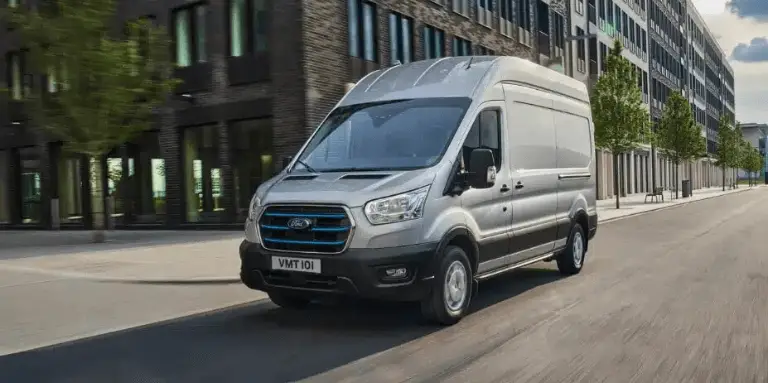
What are the disadvantages of long-term leasing?
Although long-term leasing has many advantages, it's important to find out about its limitations before taking out a contract, to avoid any unpleasant surprises. Here are a few of them:
- Cancelling a long-term hire contract is costly
Once you have signed a long-term hire contract, you will have to pay a cancellation fee. These charges can be high, depending on the contract. They are generally calculated on the basis of the remaining term of the contract, the mileage covered and the condition of the vehicle. In other words, cancellation charges can represent a significant proportion of the total cost of a leasing contract. So it's important to compare them carefully before signing up to a leasing contract.
- A long-term hire contract requires rigorous maintenance
The leased vehicle must be maintained as if it were your own. This includes servicing, repairs and routine maintenance. In the event of damage, the leasing company may ask you to pay restoration costs, even for minor damage. These costs can be high, depending on the severity of the damage.
- The mileage stipulated in a long-term hire contract must be respected
In a long-term hire contract, a monthly or annual mileage figure is set in advance. This mileage must be adhered to, or you risk paying compensation for extra kilometres. These allowances are generally calculated on the basis of the price per extra kilometre. This means that extra mileage allowances can be expensive, particularly if the vehicle is used for long journeys.
In short, long-term leasing is a financing solution that offers many advantages for businesses. However, it is important to understand the terms and conditions before taking out a contract.
The best advice we can give you is to compare the different offers and draw up a personalised quote so that our Beev experts can advise you according to your needs. By following this advice, you'll be able to choose a long-term leasing contract that meets your needs and your budget.
What is Hire to Own?
Hire to own: what is it?
La lease with purchase option (LOA), also known as leasing, is another financing solution that could potentially suit your company's needs. It gives you access to an electric car, with or without a deposit, for a period of 2 to 5 years, in return for monthly rental payments.
LOA: how does it work?
The LOA contract holder undertakes to pay a monthly rental charge for the duration of the term agreed between the two parties. In the event of non-payment, the lessor may terminate the contract and demand compensation, or even the return of the vehicle. The lessor is not obliged to repay the monthly instalments already paid.
At the end of the leasing contract, you have two options:
- Buying a vehicle : the professional becomes the owner of the vehicle by paying the purchase option.
- Returning the vehicle : the leasing company returns the security deposit to the professional, less any charges.
As a reminder, as a professional, you are eligible for the environmental bonusthe conversion premiumbut also to regional aid for electric cars and a favourable tax treatment for electric vehicles !
What are the advantages of the LOA?
Leasing with a purchase option is a financing solution that meets the mobility needs of professionals. It gives you access to an electric vehicle without having to pay the full cost, while encouraging the renewal of your vehicle fleet.

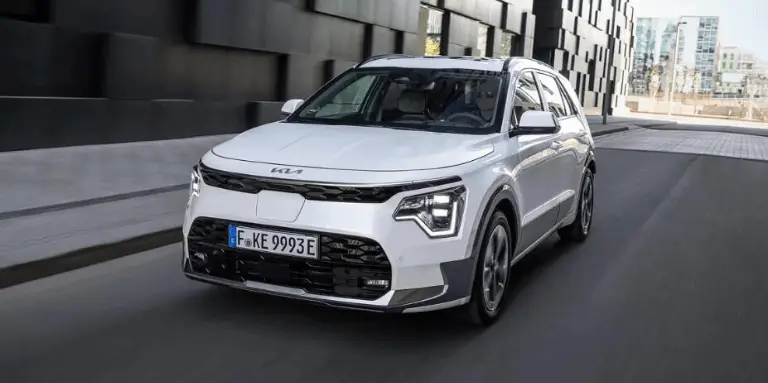
The LOA offers a number of significant advantages for your company, including vehicle fleetincluding :
- Great flexibility
Thanks to the LOAWith this type of contract, you have the option of returning or buying back the vehicle at the end of the contract, allowing you to change cars regularly without having to worry about resale. What's more, this type of contract is not subject to a set mileage, so there are no penalties at the end of the contract. It should also be noted that you have a 14-day right of withdrawal and no reconditioning costs at the end of the contract, compared with other professional leasing offers.
- A wide choice of electric vehicles
Like long-term leasing, leasing offers include a a wide range of vehiclesAll makes and models combined. As a professional, you can choose the vehicle that best meets your needs.
- Controlling your business portfolio
Monthly rents are fixed, as they are defined at the time of signing, allowing you to plan your expenditure and manage your business portfolio.
For a clearer picture of the monthly rent in question, here are some important factors that influence it:
- The price of the base vehicle is the most important factor in calculating the rent. The more expensive the vehicle, the higher the rent.
- the longer the term of the contract, the lower the rent will be thanks to the amortisation of costs.
- The LOA contract: a cost-effective solution
La LOA can be a more economical solution than a car loan, because it generally includes extended warranty and maintenance. These services are often essential to cover the risks and costs of owning a vehicle.
With a car loan, the extended warranty and maintenance are separate contracts from the vehicle. LOA, on the other hand, includes them in the lease price, which simplifies financial management.
The LOA offers a more global vision of mobility, by integrating maintenance and insurance into the rental price. This approach can be more advantageous for drivers looking for a simple, no-surprise solution.
What are the disadvantages of the LOA?
Although the LOA has many advantages, there are a few important negative points to be aware of before opting for this type of contract. These include
- High interest rates
This interest is included in the rent. This is because the annualised percentage rate (APR) of the monthly repayments is higher than with a conventional loan.conventional car loan. If you don't buy the electric vehicle, the loan is more expensive than a long-term hire contract.
- Relatively high total cost of the operation
Buying an electric vehicle under a lease can be expensive, even if the lease payments are cheaper than the monthly instalments on a car loan. The amount paid at the end of the contract is often higher if the purchase option is exercised.
What's more, there's a risk that you'll still have to pay the lease if the vehicle is stolen or destroyed, unless you take out insurance to cover these risks.
In other words, leasing can be an interesting solution for professionals who need electric vehicles on a regular basis, for example to replace a service vehicle or to renew their vehicle fleet. It can also be an interesting solution for professionals who want to benefit from an electric vehicle without having to pay the full cost.
It is important to note that the LOA is a leasing contract, not a sales contract. This means that the professional does not become the owner of the vehicle at the end of the contract, unless he or she decides to buy it.
For more information, see our article on Hire with Purchase Option for electric cars may be of interest to you.
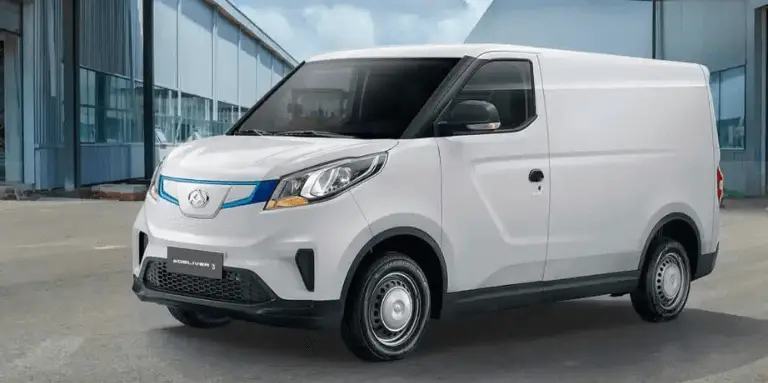
How does medium-term leasing work?
La Medium-term rental or LMD is a vehicle leasing contract that offers great flexibility. It allows subscribers to this type of contract to have a vehicle for a few weeks or a few months, without committing themselves for several years.
As a reminder, as a professional, you are eligible for the environmental bonusthe conversion premiumbut also to regional aid for electric cars and a favourable tax treatment for electric vehicles !
The LMD has the following characteristics:
- Duration: 1 to 24 months renewable
- Mileage : fixed
- Services included: repairs, comprehensive insurance, periodic maintenance and assistance
- Rent : fixed and known in advance
The LMD is aimed at customers who want a vehicle for a few weeks or a few months, without making a commitment over several years. It is particularly suited to professionals who want to respond quickly to a peak in activity or provide a vehicle to an employee on probation.
Setting up a medium-term leasing contract
As with full service leasing, the process of setting up a leasing contract is similar. Customers choose the vehicle they want, then tailor their choice to suit their needs. The purchase price of the vehicle is used as the basis for pricing the service.
The customer then defines the terms of the contract with the hire company, such as the duration of the lease, the annual mileage and the services included. It is important to note that the LMD is a no-obligation contract, which means that the customer is not obliged to return the vehicle on a specific date.
If you would like to purchase a Renault Zoe e-Tech for medium-term professional leases, here are the characteristics:
- From €435/month
- 24-month long-term rental
- 20,000 km included
- No deposit
- Without 1ᵉʳ increased rent
The price of a DML depends on the service provider. You can get the best price on the market by doing some serious research. A good solution is to request quotes online in order to access comparable offers. Beev naturally offers you the best prices from LMD !
In this article, you will find 5 good reasons to take out an LMD contract as a professional !
What is the difference between LMD and LLD?
Although the two formulas have many similarities, it is not only the duration of the contract that differs:
| Engagement | Coût | Durée |
|---|---|---|
|
The long-term lease is a formula with a commitment over several years. The LMD is a no-commitment formula.
|
the total cost of leasing is generally lower than that of leasing, because costs are amortised over a longer period.
|
Of course, full service leasing is a long-term leasing option, with a term of between 24 and 60 months. The LMD is a medium-term lease, with a renewable term of between 1 and 24 months.
|
What are the advantages of LMD?
The LMD is a vehicle rental solution that offers many advantages for professionals.
- Flexibility: meeting the need for electric mobility
The LMD allows companies to have a vehicle at their disposal for a short period. This offers a degree of flexibility to companies wishing to adapt their mobility to their needs.
- Sérénité: a headache-free leasing contract
This type of leasing contract includes maintenance, insurance and assistance services. This means that companies only have to worry about maintaining their business vehicles. To illustrate my point, a company can take out a DML to ensure that it has recent vehicles in good condition, without having to worry about repairs or insurance.
- Cost: a low-cost electric vehicle
The cost of the LMD is generally lower than the cost of purchasing a electric vehicle. When you buy an electric vehicle, you have to pay a large sum of money to acquire the vehicle. With the LMD, on the other hand, you don't pay the full cost of the vehicle. You only pay the monthly lease instalments, which reduces the initial financial burden. This is a financial advantage for companies that want an electric car for a short period. For example, a company can take out a LMD to have an electric car without having to make a multi-year commitment.
- Limited investment
Buying an electric vehicle is a major investment for a company. The purchase price of an electric vehicle can vary depending on the model, engine, options and make. The cost can be a significant burden on a company's finances, especially for small businesses or start-ups.
The LMD allows companies to have an electric vehicle without having to invest a large sum, as previously stated. What's more, this type of leasing contract does not require a personal contribution.
- Risk reduction
Owning an electric vehicle is associated with a number of risks, such as wear and tear, repairs and breakdowns. Wear and tear is a natural phenomenon that can reduce the value of a vehicle. Repairs and breakdown services can be costly, particularly for recent electric vehicles.
Reducing risk is therefore essential for any business wanting to cut the cost of its vehicle fleet. With the LMD, the lessor is responsible for vehicle maintenance and repair, allowing companies to concentrate on their business without having to worry about the condition of the vehicle.
- Optimising cash flow
The purchase of an electric vehicle represents a capital investment for a company. This means that the purchase price of the vehicle is an investment that does not generate immediate income. The LMD, and even a leasing contract in general, allows companies to optimise their cash flow by not having to pay the purchase price of a vehicle.
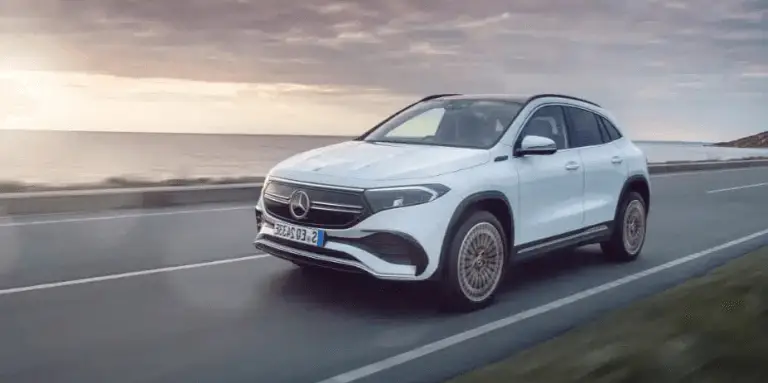
What are the disadvantages of the LMD?
- Higher cost than long-term leasing
The LMD is generally more expensive than the Location Longue Durée (LLD) for companies wishing to hire several vehicles at the same time. The LMD is a no-commitment contract, which represents a risk for the lessor. To cover this risk, the lessor charges a higher price than for a long-term hire contract.
- Maintenance and repair costs
These costs are payable by the hirer if an all-inclusive package is not taken out. Similarly, if you wish to return your electric vehicle at the end of your contract, you will be responsible for the maintenance costs.
Although taking out an LMD contract for your electric fleet There are a number of advantages to taking out a company pension scheme, but it's vital to have sufficient visibility and to be familiar with all the terms and conditions.
For a broader view of medium-term leasing, please read our article on Medium-term rental for electric cars.
Summary table of the different electric vehicle rental options for professionals
| Features | Long-term leasing | Leasing with an option to buy (LOA) | Medium-term leasing |
|---|---|---|---|
| Duration | 12 to 60 months | 2 to 5 years | 1 to 24 months (renewable) |
| Property | Remainder to the lessor | Purchase option at the end of the contract | Remains with the lessor |
| Flexibility | Limited | Purchase or return option | Great flexibility, with no commitment |
| Cost | Fixed rents, generally cheaper than leases | May be more expensive in the long term | More expensive than LLD, but more flexible |
| Mileage | Defined in advance | No defined mileage | Fixed |
| Services included | May include maintenance, insurance, etc. | Can include extended warranty and maintenance | Repairs, insurance, maintenance, assistance |
| Tax benefits | Rent deductible from charges | Can be cheaper than a car loan | Optimising cash flow |
| Disadvantages | Expensive termination, rigorous maintenance | High interest rates, high total cost | Higher cost than leasing, possible maintenance costs |
What are the mistakes to avoid when leasing electric cars for your company?
When it comes to leasing a fleet of electric vehicles for business use, it's important to get the facts right before signing up to a particular contract. In this section, we'll look at the common mistakes to avoid, to ensure that the leasing offer is tailored to your company's needs and portfolio.
Mistake 1: Not comparing offers
There are many electric car leasing companies, and the offers vary considerably in terms of price, conditions and services. So it's important to compare offers before making a decision.
What criteria should you compare?
- Monthly rent
- Fixed mileage rate
- Restoration costs
- Services included (insurance, maintenance, assistance)
- The duration of the contract
Mistake 2: Ignoring your needs
When leasing electric cars for your business, it's important to assess certain factors carefully to ensure that the electric car leasing contract is right for your business.
- Mileage
This point is crucial, as it determines the leasing price. It is important to choose a mileage package that corresponds to the real needs of your employees. If you exceed the fixed mileage, you will have to pay additional charges.
- Services
The services included in the leasing contract vary from one supplier to another. It's important to choose a contract that includes the services you need, such as insurance, maintenance and assistance.
- Contract duration
The term of the leasing contract is also important to consider. It's important to choose a term that suits your needs. If you choose too short a term, you will have to pay cancellation charges.
Here are some examples of questions to ask yourself:
→ What is the average annual mileage of my employees?
→ Do I need comprehensive or third-party insurance?
→ Do I need a maintenance contract?
→ How long do I need an electric car for?


Mistake 3: Not reading the contract
Before signing a leasing contract for your business, it's important to read all the terms and conditions carefully. These conditions are valid for the entire duration of the contract and cannot be changed.
Some long-term leasing contracts include additional services, such as insurance and maintenance. These services cannot be changed or withdrawn during the term of the contract.
It's important to understand the terms and conditions of the insurance, because some insurance companies don't cover all the costs of long-term leasing. What's more, some maintenance contracts do not cover all costs, such as tyres, wiper blades or brake pads.
If you have any questions or doubts about a leasing contract, you can ask a professional to help you. You also have a cooling-off period of 14 days from signing the contract.
Mistake 4: Not using a professional
To save time and money, we strongly advise you to call on car leasing professionals. These professionals will use their network of partners to offer you the best deals on the market. They can also tell you about the pitfalls to avoid when taking out a lease. At Beev, our electric car experts will help you make the right leasing choices and offer you the best deal at the best price.
Mistake 5: Underestimating your annual mileage
To reduce their car fleet costs, some professionals opt for the lowest possible mileage package. However, you need to be aware that if the actual mileage exceeds the fixed rate, you will have to pay penalties. These penalties average between 5 and 20 centimes per extra kilometre, depending on the terms of the contract.
That's why it's important to accurately assess your annual mileage before taking out a leasing contract. It is very difficult, if not impossible, to renegotiate the mileage package during the term of the contract.
Mistake 6: Not maintaining the car during the leasing period
The condition of the leased vehicle is important. You need to take good care of it to avoid being billed for restoring it at the end of the contract. Even minor damage can be expensive. It is therefore advisable to have any scratches, broken lights or chipped paintwork repaired before the vehicle is returned.
If the damage is extensive, it's best to take out insurance, even if you have to pay the excess.
At the end of a leasing contract, for example, the vehicle must be returned clean inside and out. If this is not the case, the lessor may charge a cleaning fee. It can be difficult to keep the interior clean, especially with children or pets. So it's important to make a regular effort to avoid unexpected costs.
Here are a few tips on how to clean your car properly:
- Vacuum at least once a fortnight.
- Clean the surfaces with a damp cloth.
- Remove all traces of dirt from the seats and windows.
- Leave the vehicle to dry in the open air.
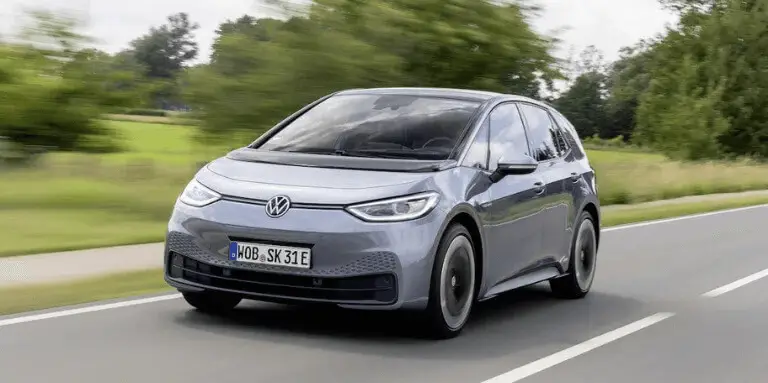
The different electric car leasing contracts for your company: conclusion
Leasing electric cars is an interesting solution for companies that want to have high-performance vehicles adapted to their needs, without having to assume ownership in most cases. However, it is important to be well informed before signing a leasing contract, to avoid mistakes that can be costly.
For more information, we've put together a guide to this topic to explore the different aspects in depth:
Read our article about :
At BeevOur electric vehicle experts are there to help you every step of the way.


































